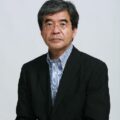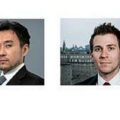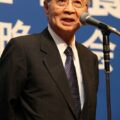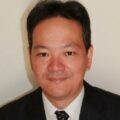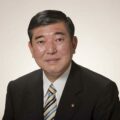(RIGHT TILT?) Is "Japan Moves to Right" True? Second Abe Administration Faces Test of Realism
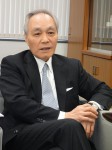
Matsumoto Kenichi
Major Western media, such as The Washington Post and Time magazine in the United States, and Focus magazine in Germany, carried stories on “Japan’s shift to the right” following the Asahi Shimbun newspaper’s report in July 2012 on the Japanese government’s “nationalization” of the Senkuku Islands, and especially after the Liberal Democratic Party’s (LDP) landslide victory in the election for the House of Representatives on Dec. 16. Not only China and South Korea but many other countries around the world began to say, “Japan is moving to the right.”
One factor behind such overseas media reports on “Japan’s shift to the right” is Japan’s insufficient explanatory capacity through diplomacy and other means. Japan has been unable to express itself properly and deliver accurate messages to international society.
Against such a backdrop, the LDP scored an overwhelming election victory under the leadership of Shinzo Abe, who bills himself as a “nationalist.” The overseas media began paying attention to Japan again after a long while and identified conspicuous trends in the country. The arrival of Prime Minister Abe, who has made remarks concerning “constitutional amendments” and “creation of a national defense force” (in a departure from the current “Self-Defense Forces”), was covered by the overseas media in a way that evoked Japan’s prewar image of “militarism” and “aggressive policies.”
In reality, however, Japan can by no means resume the sort of militarism seen in the 1930s and invade other Asian nations. In this respect, there seems to be much misunderstanding and a considerable lack of knowledge (on the part of foreign media) because Japan’s current constitution and other political systems are totally different from those of the prewar era.
In the prewar era, the emperor had supreme command of the army, navy and air force, which made them independent from the government. The military expanded its power on the strength of this supreme command.
The situation is different now. The emperor’s power as supreme commander no longer exists, while the prime minister, elected from among members of the Diet by a democratic mechanism, is now the commander in chief of the three forces. Japan’s political system now neither enables nor permits the military to engage in reckless actions behind the supreme command.
The Philippines voices expectations of an increase in Japan’s military strength. It has a territorial dispute over the Spratly Islands with China which has already built a military base there. China is advancing into the East and South China Seas in a hegemonic and militaristic manner and has even acquired an aircraft carrier based on the idea of protecting its maritime interests.
The Philippines is placing its hopes of an expansion of Japan’s entire defense strength on the grounds that Japan is the only country in Asia capable of countering China’s hegemonic movements. But even if Japan complies with the Philippines’ request, it would be impossible for Japan to return to militarism as its political system is already different from that of the prewar era.
Abe Seen Overseas as Leaning Heavily Toward Right Compared with DPJ
The overseas media say Japan has shifted to the right now, as the Democratic Party of Japan (DPJ) was said to be leaning toward the left. The DPJ took over power from the conservative LDP by winning a stable majority of more than 300 seats in the lower house of the Diet in the 2009 election. To distinguish itself from the LDP, the DPJ government called for defending and maintaining the constitution and ending nuclear power generation.
Though the proposals are understandable as idealistic theories, the DPJ failed to implement pragmatic measures to realize them, such as preparing effective work schedules. To the overseas media, Abe appears to be a symbol of the right compared with the DPJ’s idealism. Abe’s arrival means no more than a return to the LDP’s previous contentions, following the DPJ’s attempts to “change the conservative system.” But this is seen as an excessively big change overseas.
Abe’s assertions have little changed and are almost the same as those of his first administration from Sept. 26, 2006 to Aug. 27, 2007.
Abe’s Foreign Policy Approach Shown by Realistic Diplomacy During 1st Administration
Abe is a nationalist by nature. In an age of globalism following the collapse of the Berlin Wall, nationalists’ mission is to “defend our country by ourselves.” It must be said that the current Cabinet represents a considerable tilt to the right, but a political evaluation of the administration must be made empirically. This is because even if Abe (in his Cabinet) has gathered a large number of people seen as representing a shift to the right or he himself is a nationalist, it does not mean that the government is oriented toward the right.
Before the lower-house election last December, for example, Abe maintained that Japan would not give an inch to China over the Senkakus and that he had continued visiting the Yasukuni Shrine for ideological reasons. He adopted the same stance when he became prime minister six years ago. At that time, speculation also had it before the formation of his administration that Japan might move toward the right.
In addition, Abe puts the Japan-U.S. alliance above everything else. When he succeeded Junichiro Koizumi as prime minister, therefore, most analysts expected his government to follow Koizumi’s stance that a deterioration of Japan’s relationship with China had to be accepted.
But Abe decided to visit China as prime minister before any other country, demonstrating that he was also a pragmatist who believes foreign policy must be based on realism in international relations, irrespective of principle.
In the summer of 2006 when Abe was chief Cabinet secretary before becoming prime minister, he attended the second “Tokyo-Beijing Forum,” a private-sector workshop held jointly by The Genron NPO and Chinese media. In his address to the forum attended by the Chinese ambassador to Japan, Abe, who was said to give top priority to the alliance between Japan and the United States, spoke of the friendship and mutually beneficial relationship between Japan and China without making any reference to the Japan-U.S. alliance.
This was directly conveyed to China as the ambassador sent a report on it the following day. There were exchanges between the ambassador and China, such as “China should invite Mr. Abe” and “Mr. Abe will surely visit China before any other country when he becomes the prime minister.”
As Abe practiced realistic diplomacy and chose China for his first official trip overseas, the relationship between Japan and China, whose diplomatic ties had been effectively severed during the five years of the Koizumi administration, made a turnaround and returned to an amicable one.
Abe showed himself as an ardent nationalist before and after the latest lower-house election. But when he became prime minister, he said, “I don’t think I will immediately deliver on my campaign pledge to station government officials on the Senkakus, although it could occur under certain conditions.” Also, although it is his principle to visit Yasukuni, he did not say “I will go soon” but said “Although I have visited (Yasukuni) every year as a principle, I won’t say whether I will go or not when I become prime minister.” These remarks are the same as those he made during his first administration.
This is the embodiment of Abe’s political realism. Without such realism, politicians cannot engage in national governance and create effective foreign relations.
Ideally, Abe hopes to remain a nationalist. But he will conduct foreign policy by putting emphasis on pragmatism based on the reality of foreign relations or by taking the reactions of international society adequately into account.
Rise in Japanese Patriotism and Abe’s Face-Off Against Hegemonic China
Abe is surely a nationalist but I hope he is a patriot, essentially a person who loves his or her hometown, and pursues patriotism rather than nationalism. Some overseas media describe him as a patriot.
In Japan, the Great East Japan Earthquake occurred two years ago and patriotism has since kept growing. Calls for recovering hometowns and the awareness of Ishinomaki and Miyako in the tsunami-damaged Tohoku region as hometowns have become very strong. People in Fukushima, damaged by the nuclear accident, are keenly aware of it as their hometown, even if they do not want to live there now because of the radiation problem.
Japan cannot be said to be “shifting to the right” based on a development of this kind. Instead, the consciousness of Japanese people is growing more patriotic.
Abe’s philosophy essentially has patriotic aspects. It is a commonly held way of thinking in the world. Love for a hometown exists in any country and has modernized itself into the love of homeland.
In his book “Utsukushii Kuni-e” (Toward a Beautiful Country) published just before he took office as prime minister in his first administration, Abe mentioned such a direction of thought. When I held talks with him, he said he was a keen reader of my book “Kita Ikki Ron” (Theory of Ikki Kita) when he was a high school student.
Ikki Kita was a prewar theorist who claimed that democracy was the basic principle of the Meiji Restoration, and bitterly criticized the system of treating the emperor as a “living god” under the Meiji Constitution.
Kita made a well-known remark to the effect that “if something wrong is committed, it should not be forgiven even if it is done by Japan itself.” He took issue with the Shigenobu Okuma administration’s policy of stationing Japanese troops in China because it would be regarded by Chinese revolutionaries as an invasion.
Nationalists do not love their country only in a self-centered manner, which represents ethnocentrism. If a country’s policy is wrong, its people must correct it. People who truly love their country think that way.
Abe’s nationalism, if described as such, has a logical consistency.
But it is wrong for the same nationalists to force through their belief that their country may invade and insult other nations under the slogan of patriotism. A belief of this kind is merely chauvinism.
A nation should protect its pride. But chauvinism that seeks to adhere to pride even by means of military strength could commit the big mistake of xenophilia, which heavily relies on foreign countries when necessary.
Abe has come to be seen as “brave” through reports to other countries on his remarks about the creation of a “national defense force.” But the creation of such a force will not be easy as it requires a constitutional amendment, which can be proposed by a two-thirds vote of both houses of the Diet. But even if the LDP wins two-thirds of all parliamentary seats for an absolute majority, there would be a split of opinions on the creation of a national defense force within the LDP itself
Advocates of the force therefore intend to first realize a constitutional amendment to make it possible to propose an amendment when half of all Diet members support it.
When Abe’s call for the creation of a national defense force and constitutional amendments are reported, he is billed overseas as a nationalist or militarist. Although the realization of such remarks, as I mentioned earlier, is unthinkable, it should be noted that he has become braver since the last lower-house election.
But the trend is not limited to Japan. For example, nationalistic calls are growing stronger in South Korea and China, which have experienced only 20 to 30 years of economic development since independence. In reaction to them, chauvinistic calls are gaining momentum in Japan.
As if to respond to China’s hegemonic acts, ethnocentric nationalism has begun to gather steam on the Internet in Japan, while some arguments lacking political realism are also seen.
Abe’s Nationalistic Tone on Foreign Policy to Curb Domestic Discontent and Unify Nation
This trend, coupled with Abe’s arrival, has created concerns in some nations, especially South Korea and China, that Japan may return to militarism. Everyone in Japan denies the possibility, but as Asian nations were invaded by Japan in the past, local people remember the wounds they suffered through actual warfare. Even if Japan says that its invasion was “60 to 70 years ago” and Japan has “neither military nor national defense forces as stipulated in its constitution,” people tend to consider a possible revival of militarism in Japan is more realistic than what is written in the constitution.
Even if it is stressed that the constitution is the basic principle of a country, what is written can be amended as it is simply laws. This is the psychological foundation of the concerns that exist in some sectors of South Korea and China about Japan’s return to militarism of one kind or another.
While arguments that Japan is moving to the right are often heard in China, “rightists on the Internet” are increasing in Japan in the wake of violent anti-Japan demonstrations in China, although a nationalistic mental structure has not prevailed across Japan. The growth of online rightists is attributable to economic discrepancies emerging in Japan as in China.
Of university students due to graduate in March, only 60% or 65% have found employment as of December last year. Economic discrepancies are becoming more evident than before because of shrinking job opportunities and falling wages for young people.
Abe then adopted an inflation target policy, which has stimulated economic growth, causing stock prices to rise and boosting exports on a weaker yen. Economic circles welcomed the development but wages for young people have hardly increased as a result. While business circles heaved a sigh of relief, laborers’ wages did not climb and young people remain discontent.
Under these circumstances, nationalists say in their blogs that Japan is deep in trouble due to China’s rise in power and South Korea’s move toward the right, arousing a roar of applause from online rightists.
In a sense, present-day politicians fail to get elected unless they are populists and so they engage in political performances that receive a lot of applause from the public, especially young people. As a result of a trend which is partly attributable to a defect in the election system, namely the single-seat constituency system, only populists come to the center of the political stage.
Japan’s foreign policy will undoubtedly fail if a populist becomes its leader. Among typical examples in Japan were Shigenobu Okuma, who adopted a policy of invading China by putting forward 21 demands to the Chinese government, and Fumimaro Konoe during the Sino-Japanese war in the Showa era. They carried out policies designed to have the public look abroad, diverting their attention from domestic economic stagnation and political distrust. In this respect, the current situation in Japan is very similar. But this is not limited to Japan and the same is true of China and South Korea.
Anyway, under these circumstances Abe stresses to the rest of the world that Japan will “refuse to budge an inch against other countries over the Senkakus” and may “station government officials on the Senkakus to protect them.” He takes a tough stance by turning domestic discontent to the outside and bringing forward such a populist tone as a nationalist. As a result, he can unite the public.
Overseas Media’s Insufficient Understanding of Japanese History and Lack of Japanese Efforts to Communicate with the World
The current risky trend of populism, as mentioned above, is not limited to Japan but is global. Nevertheless, some Western media stress Japan’s shift to the right apparently because they misunderstand Japan. While there are a large number of considerably irresponsible arguments, the misunderstanding is basically ascribable to a lack of understanding about Japanese history.
For example, Hideki Tojo, the prime minister when Japan went to war, is regarded as the No. 1 militarist and dictator, and Chinese newspapers carry illustrations showing a Tojo-like puppet hanged as a militarist every year.
Abe is the grandson of Nobusuke Kishi who was the commerce and industry minister at that time and later became prime minister. Abe therefore is always billed as the grandson of a minister of the Tojo Cabinet responsible for initiating the war of aggression.
But few people know that Kishi opposed the dictatorial military led by Tojo and was jailed for attempting to topple the Cabinet. Kan Abe, the current prime minister’s other grandfather, had the experience of resisting the “Taisei Yokusankai” network of political parties led by Tojo. Information of this kind never appears in the overseas media.
Then simple stories are formed, depicting Abe as a war criminal’s grandson, a man who is calling for the creation of a national defense force, a reactionary seeking to revive the militarism promoted by his grandfather.
Nobuteru Ishihara, a member of the Abe Cabinet, is also introduced as the son of Shintaro Ishihara, who urged the government to purchase the Senkakus as state property. The overseas media also recounted that the father of former Prime Minister Yoshihiko Noda was a Self-Defense Forces member, building up the image of Japan as a militarist nation.
Japan still carries the image of a nation that staged a war of aggression and that has a militaristic history. Japanese people are cut off from such memories, while information on the Japanese constitution renouncing war and abandoning military power has not been disseminated widely overseas due largely to the shortage of explanations by Japan.
De facto armed forces exist in Japan in effect despite a constitutional ban, raising the question of whether a contradictory constitution of this kind can be accepted by the world. Japan therefore will amend its constitution to establish armed forces for self-defense. I think this kind of logical approach to constitutional amendments can win wide understanding. Bypassing it, a proposal to found a national defense force is readily misunderstood.
In other words, Abe’s messages are reported against the backdrop of Japan’s prewar image of militarism and aggression, generating views of its move to the right, because Japan has not informed the world of the contradiction between its constitution and reality.
Exercise of Realistic Foreign Policy and Creation of Diplomatic ‘Friends’ Needed to Win International Understanding
Under these circumstances, I think that explanations by word alone do not work. If, for example, a photo of Japanese and Chinese leaders shaking hands for a bilateral agreement to ban anyone from Japan or China from nearing the Senkakus is made public, it would be immediately recognized by the rest of the world.
The United States is eager to prevent its troops from moving to the area as a result of a contingent military clash because the United States is no longer the sheriff of the world. The U.S. media take up Japan’s tilt to the right as a message that the United States stands guard against such a contingency that could result from Japan’s move to the right.
In short, the United States wants Japan and China to avoid a conflict and the U.S. media supports the U.S. position from behind.
This is the strategic and diplomatic realism of “we protect our country by ourselves” at a time when the world has no sheriff. It is also a high-priority task for the Abe administration.
In addition, Japan needs diplomatic friends. The question is whether, for example, there is a foreign leader who listens to Abe and says, “What he is saying is not a mere revival of prewar militarism,” or who supports Japan’s position.
There used to be foreign leaders who appreciated Japan. For example, former Malaysian Prime Minister Mahathir Mohamad sought his country’s economic development by learning lessons from and tying up with Japan under his “Look East” policy.
In this respect, Japan cannot conduct its own foreign policy as it has become subservient to the United States. It could pursue an omni-directional foreign policy, under which it maintained amicable relations with every country and made no enemies but had no real friends, thanks to the U.S. hegemony and the maintenance of peace in the world, even though it was caught in the so-called Cold War.
But a war could occur in any place, such as the Senkakus, Algeria or the Spratly Islands, in the post-Cold War era. And missiles have flown from North Korea.
In this age, Japan needs countries, rather than omni-directional diplomacy, which issue messages of support such as “We absolutely believe Japan” or “Mr. Abe thinks this way or that.” But there is no such a country at a time when Japan is said to be tilting to the right. If Chinese leaders or the Indian prime minister should say that Japan is not moving to the right, the world would immediately believe that Japan is not drifting to the right but is making rightful assertions. The persuasive power of such international opinions would be significant.
It is more troublesome that even the United States cannot make such statements as Japan’s ally. Japan should clearly recognize that it can no longer get along on the basis of a “U.S. first” policy.
Abe Gov’t Expected to Practice Independent Foreign Affairs in Asia-Pacific Region
Turning attention to the Abe administration’s domestic politics, a question arises over whether there is any concern about Japan’s move to the right under the influence of populism. But, as noted, this concern is not limited to Japan but exists in many countries. On the Internet, bold and reckless views expressed by people who do not take responsibility for what they say are increasing in every country.
This is a problem governments are most desperately trying to cope with and it involves information, financial and economic issues under globalization where the roles of democracy and speech are being seriously scrutinized worldwide.
In short, Japan needs to make friends in the field of international relations while reinforcing its domestic democratic system. It would be ideal if partners who say Japan’s assertion is right would come forward.
Japan’s diplomacy can no longer be understood in a simple schema of whether it should be focused on the United States, China or Asia. The United States is making a strategic shift to the Asia-Pacific region as it recognizes the political and economic power of the region. It is calling for Japan to become a country with a strong presence and contribute to its operations in the Asia-Pacific region without causing disputes and other problems with China. This represents the reality that the “power” of the United States is weakening.
The United States wants to ask Japan to “cooperate as a partner” and this desire has led to the question of the Trans-Pacific Partnership (free trade) pact. But Japan should state that it has its own position and national interests. Japan must change its way of thinking and consider what it should do to survive in a world under globalization rather than say it will cooperate and help the United States in its operations in Asia, as if it were still subservient to Washington, on issues including the relocation of the U.S. Marine Corps’ Futenma Air Station (in Okinawa Prefecture) and the deployment of MV-22 Osprey transport aircraft.
The self-reliance of Japan is the first foreign policy task for the Abe administration. It means that Japan should engage in diplomacy on its own rather than establish a national defense force. To do so, Japan should reinforce its presence based on its economic power and a pacifist stance that it would never cause a war.
Prime Minister Abe is moving in the right direction in the sense of seeking to reinforce the presence of Japan. But the messages being sent are somewhat prone to creating the misunderstanding that he aims to revive militarism. He should pay full attention to this point.
======================
Translation of a contribution to Discuss Japan — Japan Foreign Policy Forum (February 2013)
Kenichi Matsumoto, a historian and theorist, graduated from the Faculty of Economics, the University of Tokyo, before assuming the post of professor at Reitaku University and a visiting professor at Higashi Nippon International University. He has received an Asian Pacific Award from the Asian Affairs Research Council with his book Kindai Asia seishinshi no kokoromi (A Tentative Intellectual History of Modern Asia), the Shigeru Yoshida award with Nippon no kindai 1 kaikoku ishin (Modern Japan 1: opening of country and restoration), and the Shiba Ryotaro Prize and the Mainichi Publishing Culture Prize with Hyoden Kita Ikki (Biography: Ikki Kita) in 2005. Matsumoto has served as a special advisor to the Cabinet from October 2010 to September 2011.
